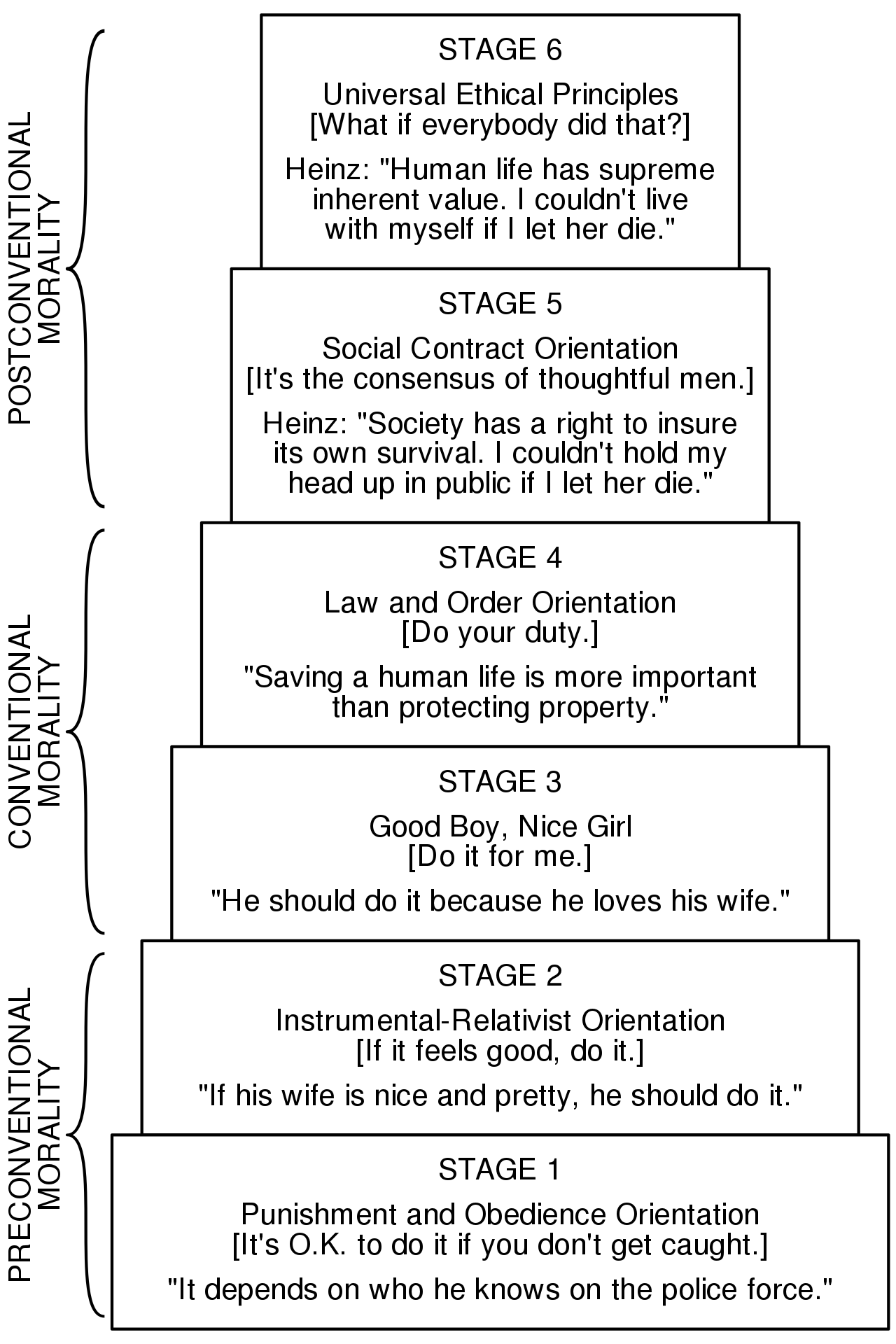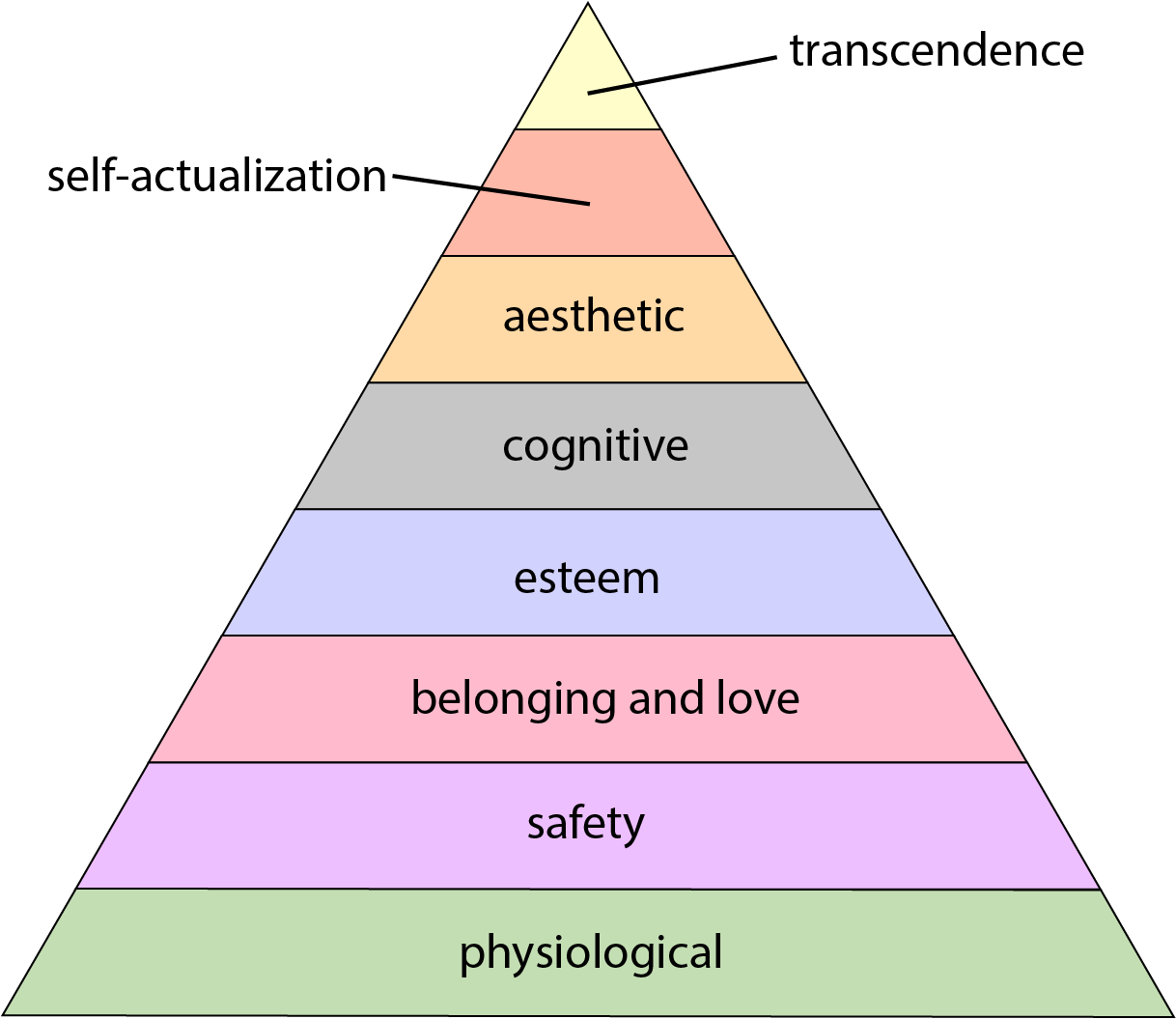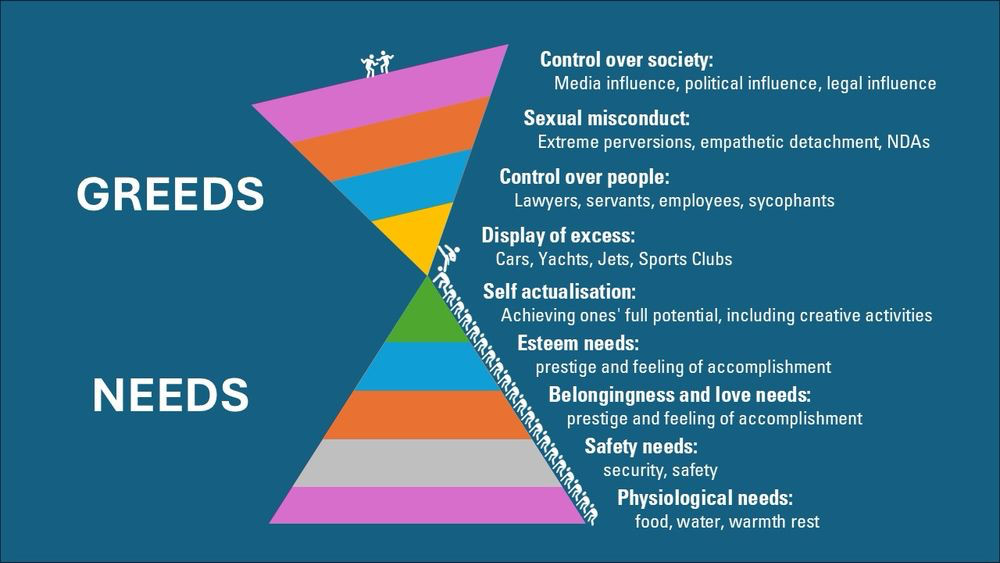Necessary Prerequisite

Progress happens because every new concept or technology is built on the foundation of everything that came before it. This principle is universal, applying to the evolution of the universe, of life, as well as education, personal growth and cultural evolution.
"An open mind is a prerequisite to an open heart." -Robert Sapolsky
One of the primary goals of the metaculture wiki is to provide the means for filling in the prerequisite knowledge required to fully understand all of its core concepts. Everyone comes with different educational backgrounds, religious and cultural perspectives. metaculture should meet people where they are, and provide a clear path to the "top of the mountain."
In Fractals
Calculating a fractal equation is an iterative process using a recursive feedback loop, with each new repetition of the equation revealing a new layer of complexity. It is impossible to reveal the full pattern without performing every calculation, each of which is built upon the result of the previous one. The same is true for all of knowledge, which is the primary argument being made on this page.
In Education
In education, you must learn the fundamental concepts for a subject before you can learn the advanced theory. The fundamentals are a Necessary Prerequisite for understanding the higher-level classes.
In Societies
In order for societies to evolve, there are necessary prerequisites for each step. If you have ever played the game Civilization then this point is obvious. You must invent the wheel and tame horses before you can invent the chariots that will let you dominate the ancient era. Writing must be invented before mathematics, which is required for trade and navigation.
Civ 6 Tech Tree | Civ 6 Civics Tree
In Moral and Cognitive Development

The cognitive developmental systems proposed by Kohlberg and Maslow (and Piaget, Haidt, Wilber, and others) exemplify how the concept of educational progression and prerequisite knowledge applies to areas of personal development. If you want to obtain enlightenment then there are necessary steps you must follow.
metaculture seeks to define those steps, with science. When you know the path ahead, it is easier to find your way to the top of the mountain. Understanding the stages of cognitive development accelerates that development.
Kohlberg's Stages of Moral Development
Kohlberg's stages of moral development is an important concept to learn in order to understand how different people perceive ethical decision making. It comes up in many places on the metaculture wiki. It demonstrates how the building blocks of ethical knowledge and experience lead to a progressive expansion in our definition of ethics.
While the theory is not perfect, it accurately describes moral reasoning as a progressively learned skill that continues to consider more people with more nuance until a fully generalized and inclusive belief system is reached.
In Jonathan Haidt's The Righteous Mind, Kohlberg is used as a jumping off point in order to form a broader, more universal theory of moral development (Moral Foundations Theory) that is inclusive of non-western cultures and does not rely upon the rationalist assumption that moral reactions are based on reason, when evidence shows that reason is more often used to justify those reactions after the fact.
Even though Kohlberg's model is not the latest and greatest, it formed the foundation of moral development theory for decades and accurately demonstrates the process of generalizing and universalizing ethical systems that happens the more you study these things. Recognizing when someone is still on Stage 4 goes a long way to explain why so many people justify immoral acts that are technically legal. The model also shows us that improvement is made through education, not persuasion, as is the case for most ideas that are backed by evidence but still denied by significant numbers of people, evolution being a prime example.
Maslow's Hierarchy of Needs

Maslow's hierarchy of needs marks a similar path for personal growth, but focused on the satisfaction of our physical and emotional needs as prerequisites for spiritual and moral fulfillment. Before you can find love you must first find shelter. Before you can achieve self-actualization, you must have love. Each stage is a step towards enlightenment that rests on the foundation of the previous stage.
Critics have pointed out that the order of this progression is not consistently followed [1], but the concept is still important to understand. Basic needs should come first. If you are trying to increase happiness in a society, a focus on higher education and the arts will have less impact than solving food scarcity if people are starving. Mental health issues are much easier to solve when you don't live on the street or a single paycheck away from it.
It's a good way to understand the steps needed to get to enlightenment. Sure, the order of execution is not absolute, but the relative priorities are. It also demonstrates that you have to meet people where they are, fulfill the needs that are most pressing, and build on that infrastructure to achieve higher-level goals.
Ken Wilbur's Integral Theory

The new age philosopher Ken Wilber's Integral Theory offers a similar view of the stages of spiritual development and consciousness that attempts to create a unified framework for multiple cognitive development models. His writing is less scientific and incorporates far more conjecture and mysticism than is permissible in an academic work. However, the Structural Stage Theory and its successor Spiral Dynamics closely align with established theories of cognitive development and can be quite useful for understanding the perspectives of people at different stages of development.
Wilber also ties it into a universal self-organization and complexification process similar to modern theories of Universal Darwinism. The concept of a "holon" which is "simultaneously a whole, as well as a part of a larger whole" is perfectly embodied by the fractal. While it can sometimes get repetitive and esoteric, and needs to be read with a skeptical mind, Wilber can help put some of the deepest insights into states of consciousness provided by Buddhism within the context of modern psychology and cognitive development theory.
The "All Quadrants All Levels" model depicts the whole universe in terms of progressive holarchies, including the evolution of galaxies and planets, living systems, intelligence, and culture. [2][3][4] Even though this perfectly describes the nature of fractal self-organization, where new patterns of behavior emerge when collections of independent elements act in concert, he only occasionally references fractals in his writing. This is something of a missed opportunity, because fractals provide the mathematical basis for how and why holarchies tend to self-organize everywhere in the universe.
There are many issues with Integral Theory and the Integral Movement, including flirtations with pseudoscience, grift, and supernatural explanations. This has kept the Integral movement from defining metaculture even though it shares a similar goal.
Model for Hierarchical Complexity
The progression of cognitive development through the various stages described by Piaget, Kohlberg, Maslow, Loevinger, Kegan, Gebser, and Fowler that are combined to form Integral theory are better represented by a progressive complexification rather than a linear progression or hierarchy. This reflects the fact that at each sage, additional information, nuance, and a wider in-group are the key differentiating factors. The fractal iteration process also better represents the process of "transcending and including" that occurs at each stage.

The Model of Hierarchical Complexity provides the most complete and evidence-based model for how thinking complexifies as wisdom is generalized. Unlike Integral, it is an actual formal, peer-reviewed theory, and leaves out the mentalistic elements that defy empirical study. It can even be applied to non-human species!
Culture Mirrors Cognition
This process also mirrors the development of religious belief systems throughout human history, from ancient spiritism and ritual magic, to the mythological, doctrinal, rational, postmodern, and universal. This can be viewed as humanity's collective consciousness coming to greater generalized understanding as our species ages, just like our own consciousness grows as we become older and wiser--assuming you keep on learning!
Needs Versus Greeds
This great infographic shows the difference between our "needs" and our "greeds." Once you have all you need to achieve physical and emotional security, your duty is to help others, not subjugate them.

You Don't Need to Be a Know-It-All
The progression through the cognitive stages of development relies on gaining enough information and experience to adopt the new conceptual framework and generalize the previously disparate concepts into a new, holistic theory of reality.
Put more simply, this means that you don't need to become and expert in neuroscience in order to understand the materialistic view of consciousness. You don't have to be an expert in theology to understand pantheism. You don't have to be a sociologist to understand the universal in-group. These concepts are emergent whenever a person acquires enough of the key ideas that form the foundation for the next level of understanding.
Once that understanding is obtained, new information simply becomes more details--like additional iterations of a fractal pattern being revealed. That which fits in the current paradigm fills out new, beautiful kaleidoscopes of understanding. Information that doesn't fit accumulates as exceptions, until the next paradigm shift creates a new generating equation, and a more complex pattern emerges that incorporates those outliers.
Psychological Off-Ramps for Magical Thinking
Using metaphor mapping allows supernatural, pseudoscientific, and other beliefs not based on reason to become connected to a science-based reality. This helps validate the emotional goal and connection to the belief rather than debunking, which is ineffective at persuasion.
The placebo effect is particularly useful for this, since most ritual-based healing techniques rely on the placebo effect for any efficacy that they do have.
The goal is to create a roadmap of ideas and educational curriculum that can take someone from a magical/mythical mindset to one of integrated rationality and universalism.
The Fractal Tree of Knowledge
See the Fractal Tree of Knowledge page for an example of how to reason yourself from a stage 4 to a stage 6 on the Kohlberg scale.
Prerequisite for Peace
metaculture is a necessary prerequisite for a united human future. It is the framework that enables cross-cultural understanding of our common goals. Only when all people are able to see all others as members of their in-group can we be truly unified. This is accomplished by creating a common scientific framework for understanding religious allegory in all forms, allowing members of any culture to see other cultures as analogous equals rather than heretics and heathens.
Anyone Can Get It
We see so many people spreading hate, anger, and general bad karma everywhere in modern society. Those who understand that this negativity is hurting them much more than anyone else sometimes wonder what it is that these people fail to "get" about life. metaculture proposes that there are very specific, identifiable concepts that negative people fail to understand, and that learning these concepts can transform a person and make them an optimistic realist, who sees and seeks out the beauty and wonder of the universe, while still not losing sight of the real challenges life imposes.
This is a very hopeful perspective on the human capability for redemption. Anyone can be "saved" by learning the necessary concepts. Anyone can transform their lives into one that is full of happiness. Your genes and upbringing may have predisposed you to cynicism and negativity, but your brain is always capable of learning if you expose it to the right information, and when you understand the holistic beauty of the natural universe you cannot help but realize--it's pretty freaking sweet.
These aren't just differences of equally valid opinions. This is the common conclusion of every great philosopher, every religious tradition, and the greatest scientific minds throughout history.
The Dunning-Kruger Antiproliferation Movement
When it comes to understanding universal subjects like politics and religion, people with vastly different levels of subject matter expertise are expected to converse as peers. In order to understand ideas like universalism you must first have an understanding of the basic tenets of the major world religions and their commonalities. These are things that can be taught, but differences of opinion on these matters are not called out as the disparities in education that they truly are.
There are entirely too many people on social media giving opinions about things when they obviously haven't taken the prerequisite courses. They insert themselves into graduate level conversations about topics when they haven't passed the 101 course. Their ignorant opinions are often amplified by others with the same lack of expertise, on the basis that their arguments appeal to common sense or the values of their in-group. It has led to the mass-proliferation of misinformation via the Dunning-Kruger effect. Newsfeed promotion algorithms must be adjusted to prioritize experts, and trust in institutions must be restored so that expertise is not ignored or contradicted.
Podcast hosts (but not these!) are particularly bad offenders. They have become a dangerous amplifier of misinformation, as their insatiable hunger for content that chases the whims of social media algorithms causes them to give uninformed opinions on all kinds of scientific and political topics. Many suffer from audience capture, where the monetized clicks they get from their most ill-informed videos incentivizes them to lean harder into their worst takes.
Our culture needs to develop a new taboo regarding the voicing of opinions on subjects which you have neither experience nor expertise. If you are just shooting your mouth off because you think you have to have an opinion about everything, or parroting something you heard but have no understanding of, then you need to sit down, shut up, and listen to the experts.
Is this statement ironic when presented on a wiki that gives an opinion on nearly everything? Perhaps. But in this case the consistent opinion given is to trust science and expertise rather than any particular conclusion drawn, which makes it different.
If you do participate in the conversation, remember to act like a student and not a teacher if you're not qualified to teach on the subject. By having well-understood and trusted standards for education and credentialing within all areas of specialization, and cultural norms that reinforce them, we can hopefully get to a place where our minds are consistently nourished by the finest information from the most knowledgeable subject matter experts.